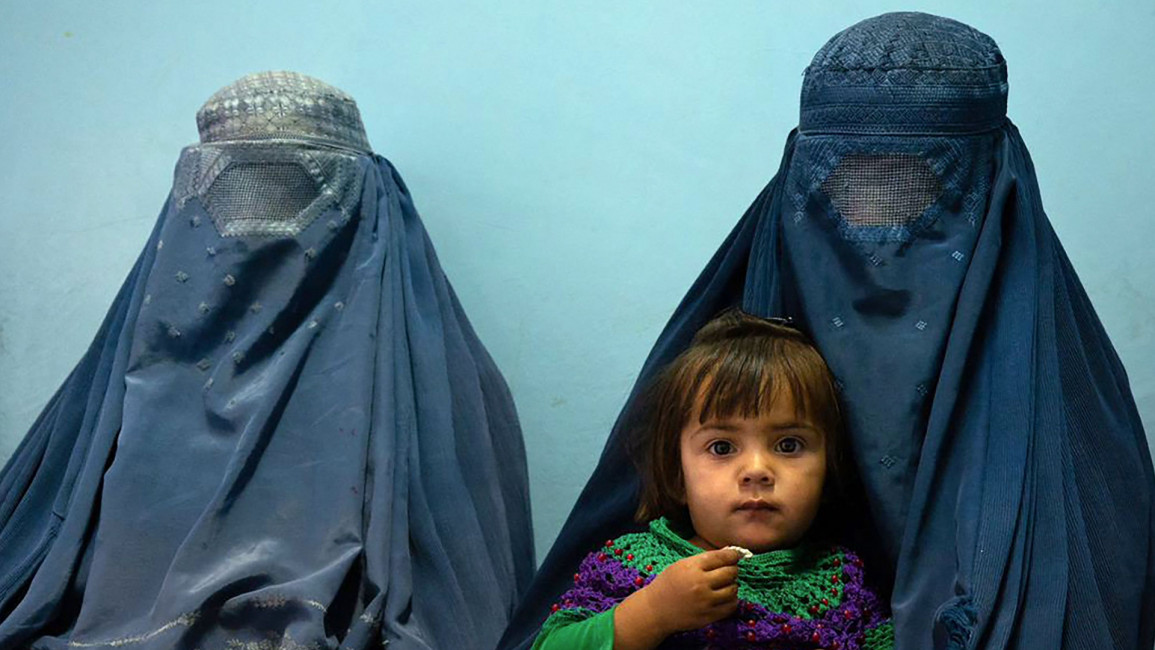
The Taliban haven’t changed — it’s time to open the world’s borders to Afghan women and girls
Last week, the Taliban unveiled a 114-page document titled the “Law on the Promotion of Virtue and the Prevention of Vice,” which mandates that women cover their faces, bodies, and even their voices outside the home through 35 strict articles.
This decree represents one of the most severe restrictions on women’s freedoms in modern history.
The timing is painfully ironic, as the US recently celebrated the inaugural Women’s Equality Day on August 26 — a day that recalls Laura Bush's 2001 radio address, where she condemned the atrocities Afghan women faced under the Taliban’s first regime.
The international response to these oppressive decrees has been alarmingly indifferent. Few nations have condemned this massive regression in rights for Afghan women and girls. The Taliban’s leadership, aware that the world has largely abandoned Afghanistan, feels emboldened to push their oppressive agenda to unprecedented extremes.
On September 2, the Taliban’s supreme leader, Hibatullah Akhundzada, reinforced these decrees by ordering stricter enforcement, solidifying a vision of Islamic society unparalleled in the Muslim world.
Meanwhile, the international community continues to treat Afghanistan as a contained crisis, neglecting the broader global implications of these policies. The situation worsens as some leading Islamic nations, like the United Arab Emirates — despite advancing women's rights and education — remain silent on Afghanistan.
Simultaneously, countries such as China and Russia engage with the Taliban for geopolitical gains. China's acceptance of the Taliban-appointed ambassador to Beijing signals de facto recognition and has been followed by significant economic investments, including a 25-year contract for oil extraction in the Amu Darya basin, valued at over $540 million.
Ongoing negotiations for lithium mining projects further demonstrate this engagement, with potential investments reaching up to $10 billion.
What next for Afghan women?
As the Taliban intensifies its mission of gender apartheid, its economic ambitions continue to expand, seemingly unaffected by blatant human rights violations.
This raises a critical question: if the Taliban's legitimacy and economic interests can thrive despite their systematic abuse of women, what does this imply about the effectiveness of the United Nations' Declaration of Human Rights? Can we still consider these rights truly universal and enforceable if they fail in the most dire circumstances?
In response, some countries have adjusted their asylum policies to better protect Afghan women. In July 2023, Switzerland began granting Afghan women and girls official refugee status, moving beyond temporary protection. This shift offers Afghan women a chance for more permanent and stable refuge in Switzerland. This decision followed the European Union Agency for Asylum's (EUAA) January 2023 guidance, which recognised the well-founded fear of persecution faced by Afghan women — a determination that also influenced other European countries like Germany and Sweden to grant asylum to these applicants.
However, legal scholars argue that countries can and should go further by adopting something called prima facie refugee status for Afghan women and girls.
This approach would grant automatic refugee status without the need for individual assessments, acknowledging the Taliban's systematic persecution of women and girls as sufficient grounds for protection under the 1951 Refugee Convention. Prima facie recognition would streamline the asylum process, providing immediate refuge and reducing bureaucratic delays.
Another critical reason to adopt prima facie refugee status is to dissuade Afghan women from taking dangerous, unauthorised routes to Europe.
It underscores the need for effective diplomacy with Afghanistan's neighbouring countries, securing safe passage for Afghan women to leave Afghanistan and reach a third country for refuge.
The situation in Afghanistan has reached a critical tipping point. When the US invaded Afghanistan, it was under the guise of liberating Afghan women from Taliban oppression.
At that time, the world was largely disconnected from the Taliban, but now they are emboldened. They are actively codifying and systematising the erasure of women — an erasure the international community once vowed would never return.
Billions of dollars were invested in the next generation of Afghan women. Now, with the systematic erasure of Afghan women and girls underway, the doors of refuge must open wide.
Sara Wahedi is an Afghan-Canadian tech entrepreneur and humanitarian. She is the founder and Chief Executive Officer of Ehtesab, a civic technology startup in Kabul, Afghanistan.
Follow her on X: @SaraWahedi
Have questions or comments? Email us at: editorial-english@newarab.com
Opinions expressed in this article remain those of the author and do not necessarily represent those of The New Arab, its editorial board or staff.




 Follow the Middle East's top stories in English at The New Arab on Google News
Follow the Middle East's top stories in English at The New Arab on Google News


